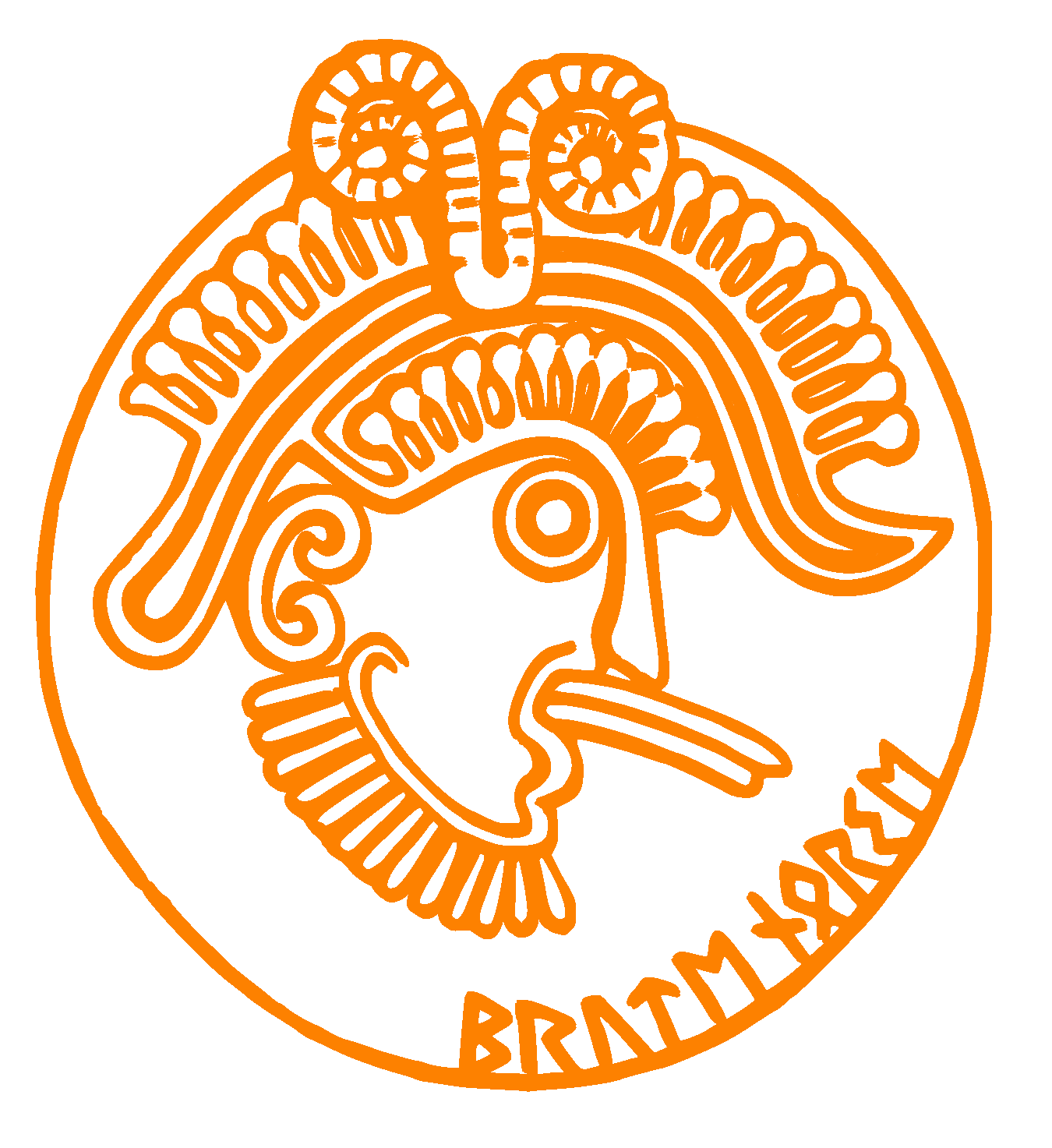"The Viking Factor": An Entry from the Personal Journal of Mircea Eliade
/Oslo, 23 August 1970
. . . we head towards the Viking Museum on the other side of the road. The spacious, well-lit rooms house boats dating from the ninth century and admirably decorated four-wheeled wagons. What to say about this head of a man from which emanates such an expression of suffering that one might believe he had just been tortured? Every time I try, for my own interest, to understand the Viking phenomenon, I can't help experiencing a feeling of frustration. There is in that phenomenon an enigma that no historian has yet succeeded in solving. But what is most serious is that this enigma resides in the Vikings' destiny. They loomed up in history at the end of the eighth century, went from conquest to conquest, pillaged, destroyed, founded dynasties, swarmed into Iceland and Greenland, and discovered North America.
The Viking era lasted for two centuries. Aboard ships similar to the one I am contemplating, they launched themselves into all the seas of the North, attacked England, Ireland, France, crushing the kings and princes who attempted to resist them, taking their places, establishing the kingdoms of Iceland, Norway, and Denmark. For a time they dominated England, carved out a fief in Normandy, extended as far as Spain, and made their way into the Mediterranean. Eventually, those in Normandy went as far as Sicily, where they encountered the descendants of other Vikings, the Varangians, who, having left the Baltic, headed toward the east, conquered a portion of the Slavs, established the kingdom of Gardarike with the two famous cities of Kiev and Novgorod, and then traveled down south on the great Russian rivers. Some of them reached as far as the Caspian Sea and had dealings with the caliphate of Baghdad. Others, in greater number, headed towards Constantinople, where they joined the armies of the Byzantine emperor. It was from there that they ventured as far as Sicily.
Photo: UiO
Around the year 1000 all their leaders were converted to Christianity. Some of them returned to their respective lands, imposed the new religion on their subjects, reclaimed their thrones or devoted themselves to trade. By 1030, the Viking era had met its end.
Quite obviously, the spirit, the institutions, and all that the Vikings had brought about had a profound impact on all medieval Nordic culture, and the Viking era is an integral part of the history of all Nordic nations. This heroic and orgiastic exuberance, this debauchery of bloody violence, energy, and creative genius such as were known from 800 to 1000, never again reached such heights. After 1030, the "Viking factor" disappeared from history. Under the circumstances one can't help thinking of the Mongol era, except that the followers of Genghis Khan succeeded in remaining in the empire of the steppes that they had carved out for themselves, whereas the Vikings dissipated their efforts in multiple unique, disordered, or eccentric undertakings. Their adventure brings to mind that of the Polynesians, who in a few centuries swarmed onto all the islands of the Pacific, bringing their civilization with them.
Photo: UiS
In the Viking adventure that stands out most clearly is the omnipresence and the weight of destiny. It is sufficient to recall that in the year 1002 the famous Leif Erikson discovered and colonized a territory he called Vinland, and which was most probably none other than the present-day Newfoundland, for recent archaeological digs there have brought to light vestiges of Viking establishments. Some of the colonists then traveled south and went as far as the region of Rhode Island. The connection between Vinland and Greenland persisted up until around the middle of the fourteenth century. What eventually happened, we don't know. The fact remains that at the end of the fifteenth century there was no longer any trace of Norwegians, descendants of the Vikings, on American shores.
It would be useless to wonder, or to imagine "what would have happened if...": If, for example, Leif Erikson had landed on the same shores, not between Labrador and Virginia, but several hundred kilometers further south and had thus discovered the rich territories that six or seven hundred years later would feed the dreams of thousands upon thousands of colonists from England. How would world history itself have evolved if the discovery and the colonization of North America had taken place before the discovery of firearms, and in an age, therefore, when it wouldn't have been as easy to get rid of the autochthonous populations by displacing or exterminating them, a confrontation and a symbiosis between the two civilizations still being possible.
When I was young my friends and I had endless discussions on the fatality inherent in minor, provincial civilizations, a fatality which willed that their creative genius would be exercised to no purpose in rediscovering ideas or technical developments that had already been discovered and had been in use elsewhere for a long time. Just as if someone reinvented the bicycle twenty or thirty years after it had begun to be mass produced in the West. But even more tragic is the destiny of individuals or nations whose unique genius is wasted on creations and discoveries before their time, and much too early. Thus the apparent futility of the efforts, sacrifices, courage, and intelligence of a Leif Erikson, who only needed to discover America three or four centuries later and three or four hundred kilometers farther south...
Mircea Eliade (1907-1986) was a Romanian author, philosopher and historian of religions. Though heavily criticized in recent decades, Eliade's theories and work on the nature and history of religions changed the face of religious studies. His books The Sacred and the Profane (1961) and The Myth of the Eternal Return (1971) remain classics in the field of comparative religion.
Work Cited:
- Eliade, Mircea. 1989. Journal III, 1970-1978. Translated from the French by Teresa Lavender Fagan, The University of Chicago Press: Chicago









